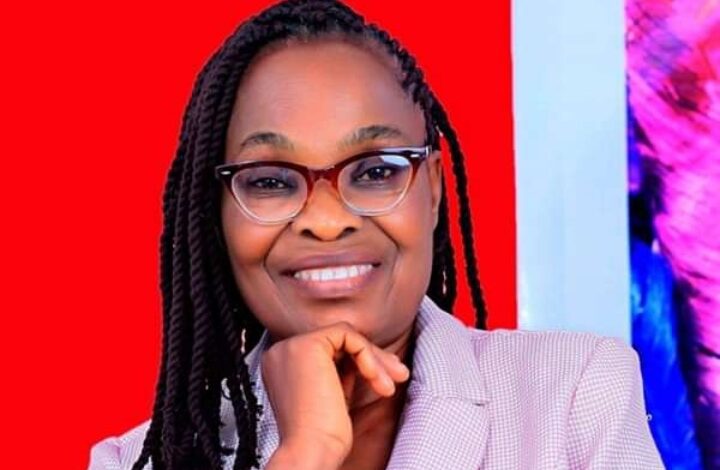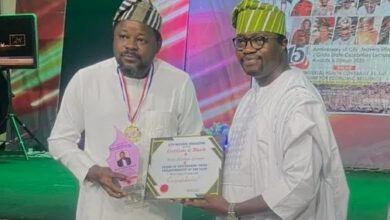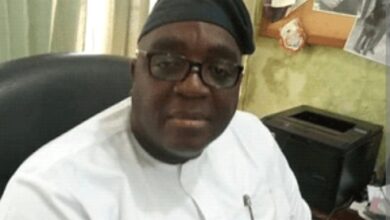ONDO WOMANIFESTO COORDINATOR, MRS. OMOLONA MAKES CASE FOR THE FIVE GENDER BILLS IN A NOVEL CALL TO THE NIGERIAN 10TH ASSEMBLY

15th May, 2023
Ondo State Coordinator for WOMANIFESTO, Mrs. Olabisi Omolona has made a passionate appeal to the 10th Assembly to look into the five gender bills for increased visibility and participation of women in politics most especially.
This call was made by Mrs. Omolona while addressing journalists in Akure noting particularly the critical roles women play and the need to involve them in maters that affect them and nation building.
Below is the full content of the release:
March 1, 2022, was an unhappy way to mark the first day, commemorating the celebrations of Women’s Month. The 9th National Assembly had on the above date, rejected bills that would have, limited and in some cases, eradicated the challenges women face when it comes to areas that concern them. Those Bills would also have among other things, increased women’s representation in politics, and accessing of more opportunities in governance and the society at large. Gender equality was the focus of those five bills that were rejected by the 9th National Assembly’s vote.
The following are the crux of the bills;
At least 10% Affirmative Action for women in ministerial and commissioner positions.111 special seats for women in cabinet positions,Indigeneity rights for married women,Citizenship by registration for non-Nigerian men who are married to Nigerian women,
35 percent affirmative action for women in political party administration.
The Distinguished Senator Ahmed Lawal, the Senate President of the 9th Assembly, had advised the authors of the bills to not lose hope at its rejection, however to be better prepared and to fight hard when reintroducing the bills to the 10th National Assembly despite the regrettable rejection of all of the laws.
It is important to state that Nigeria is a forward moving nation, and we at WOMANIFESTO a cluster member of the Gender Bills Response Team are committed to the development of women’s rights in this nation, thereby seeking to attain gender equality on all spheres, and we also aim for Nigeria to be at par with other nations of the world in striving to attain the Sustainable Development Goals by the year 2030 mark on women’s equitable involvement and leadership in politics and public life.
Data, however, indicate that women are underrepresented at all levels of decision-making and that political life is far from having gender balance, hence this call.
Women have never had a greater than 6% representation in politics since the Fourth Republic began. Currently, Nigeria is ranked 139th out of 156 nations in the list of nations having the biggest gender disparity. The percentage of women in political offices peaked in 2011 and again declined in 2019, when 6% of all parliamentary seats were held by women. 1999 had the lowest representation of women in political offices, at just 2.5%.
Historically looking at the numbers of women in politics, and in the most recent election, we are sad to state that women are not making as much progress as would have been expected given the new crop of federal lawmakers elected during the recently concluded presidential and National Assembly elections; only 15 of the 423 legislative seats so far declared by the electoral body are held by women, compared to 408 men.
In other words, men have 96.5% of the 423 seats, while women hold 3.5% of those seats. Women now have two seats in the red chamber and thirteen seats in the green chamber.
The National Human Rights Commission (NHRC) had requested that the 10th National Assembly study and enact a resolution in response to the imbalance in the representation of men and women in all areas of government and the workforce.
Concerned about the disparity in the male-female percentage in all spheres of governance and career, the National Human Rights Commission (NHRC) had urged the 10th National Assembly to consider and pass the Gender and Equal Opportunity Bill and other bills supporting affirmative action.
The Commission said the passage of the bills would reduce gender-based violations and legally equip women to challenge the inequalities confronting them, including sexual and gender-based violence (SGBV), which has continued to rear its ugly head in society.
It is important to take a look at women’s participation in politics. Again, like the gender constitution of the previous and current National Assembly (NASS), Nigeria’s 10th Senate and 10th House of Representatives, which will resume by June, are male-dominated, raising concerns about the lip service paid to affirmative action as well as gender and equal opportunity in the West African country.
However, the Nigerian Women’s Coalition under WOMANIFESTO a cluster member of the Gender Bills Response team are not giving up; we are consolidating the lessons learned, restrategizing, and starting over in ensuring that the gender equity bill is passed into law.
Hence, the Ondo State Chapter of WOMANIFESTO, along with other well-meaning Nigerians, are giving a call to the newly elected political office holders (Representatives), that will be inaugurated and sworn in come May 29, 2023, to give the five gender bills top priority, noting that Nigeria as a whole will profit from these bills, not only the women.
Furthermore, Nigeria will be regarded and honoured in the Council of Nations because of her disposition to equity in gender related issues. In the same vein, we congratulate them all and pray for wisdom and strength to advance Nigeria to enviable heights among the committee of nations.
In conclusion, we also urge His Excellency the president of Nigeria, Mohammadu Buhari to sign the Sexual Harassment Law as a crowning act to the winding down of his administration, this act, will further emphasis his contribution to human rights and in particular women’s right in Nigeria.



